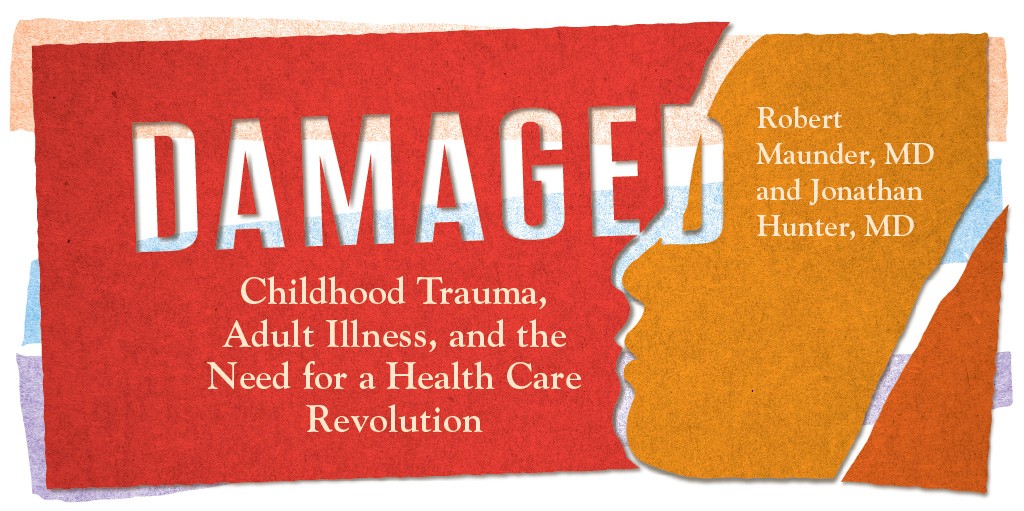Read the abstract created by GetAbstracts (or listen to it narrated). Rated 9/10 on getAbstract and tagged “Scientific,” “Visionary,” “Insider’s Take.”
Read commentary on Damaged by Sue Robins and review in Publishers Weekly.
Read interview of Bob by Heather Tuba
REVIEWS
“I loved this book. Damaged is important for all healthcare workers. It presents lucid and striking discussions of the impact of ACEs (adverse childhood experiences) on individuals and their healthcare. Many compelling and unforgettable case histories and courses of treatment are presented that will be of enormous value in the education of current and future psychotherapists, physicians, and nurses.”
Irvin Yalom, Professor Emeritus, Stanford University and author of The Gift of Therapy and A Matter of Death and Life
“I have been pining for this book and Maunder and Hunter did not disappoint. Like the proverbial car crash you can’t stop looking at, Damaged is a book about a wounded soul whose story you must keep reading. Maunder and Hunter find the love in a patient that many of our colleagues would label ‘difficult.’ They connect the dots that link strength and vulnerability and those that join the psychological to the physical. With skill and humility, Maunder and Hunter tell a story about every one of us.”
Dr. Brian Goldman, emergency physician, host of CBC’s White Coat, Black Art, and author of The Power of Kindness: Why Empathy is Essential in Everyday Life
“A deeply personal narrative of how humanizing relationships between clinicians and patients heals trauma. Definitely worth reading.”
Alika Lafontaine, President-Elect, Canadian Medical Association
“This book is dynamite! Damaged is a bold and profoundly important story of two doctors and of one man’s monumental struggle. You will find yourself, your family, friends, and co-workers in this phenomenal read. So often the healthcare system fails the most vulnerable people when it comes to mental health. Maunder and Hunter show clearly not only how the system fails, but the revolution it will take to not just improve, but reengineer and create a structure of care that truly helps people heal. The vividly clear connection between early childhood trauma and adult physical and mental health issues is an education we all need. This story is a powerful example of what’s possible. You will see that we can all contribute, and demand the revolution needed to make things better for everyone.”
Clara Hughes, O.C., O.M., six-time Olympic medalist, founding spokesperson for Bell Let’s Talk
“This narrative is the best teaching tool that I’ve ever read. The story of Isaac and his therapist, Bob, is more than a model demonstrating the intensity and challenge of providing psychotherapy. The account is humane and transparent and owns the errors in establishing the bonds of trust that enable Isaac to heal over time. It also recounts the remarkable thirty-year relationship of mutual support and reflection shared by two psychiatrists, and of the trials and joys they experience with their patients. The authors appeal for societal activism on issues of racism, poverty, trauma-based therapy, accessibility, and accountability – the myriad of social injustices that we all tolerate. This is their call for a revolution in care.”
Jean Marmoreo, MD, author and advocate for elders, end-of-life, and medical assistance in dying (MAiD)
